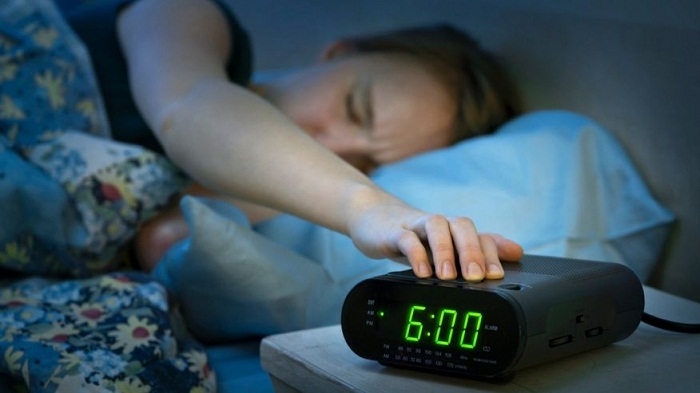Now researchers say that poor sleep quality, and disruption of the deep, restful sleep known as slow-wave sleep, both play a key role.
“[The study] shows specifically that slow wave sleep, or deep sleep, is important for lowering the levels of amyloid overnight,” said Yo-El Ju, a neurologist at the University of Washington at Saint Louis and a co-author of the research. “We think that not getting good sleep chronically over the years would increase the risk of the amyloid and tau clumping up and causing Alzheimer’s disease.”
Published in the journal Brain, the study involved a group of healthy participants aged between 35 and 65, who each undertook two sleep experiments a month apart.
In both experiments, participants were asked to complete a sleep diary at home over a period between five days and two weeks, during which they also wore sensors to track their movements during sleep.
At the end of the period, they spent a night asleep in the laboratory where they had their brain-waves tracked and, the following morning, they each had a lumbar puncture taken.
While asleep in the laboratory setting, all participants wore headphones, but while one group had no noises played to them, the other group were played a series of beeps of increasing loudness when it was detected that they had entered slow-wave sleep. “Our goal was to get them to just get out of slow-wave sleep, but not wake up,” said Ju.
The results, based on data from 17 participants, revealed that disruption of slow-wave-sleep had an impact.
Among those who showed a response to the disruption, the team found on average levels of beta amyloid were about 10% higher when the beeps were played.
“The more we were able to disrupt their slow-wave sleep, the more the amyloid increased,” added Ju. But, she noted, not all participants showed a response to the sleep disruption – a result Ju says is down to them having little slow wave sleep in the first place.
Since tau levels take longer to change than beta-amyloid, Ju says it was not surprising that the experiment did not show an impact on tau levels.
But data collected by the participants at home revealed an effect. While sleep duration or the proportion of time in bed spent asleep did not affect beta-amyloid levels, the latter was linked to increased levels of tau. “The worse your sleep quality, the more your tau increased,” said Ju.
The authors say the findings suggest that repeated disruption of slow wave sleep, or poor quality sleep, could lead to a buildup of beta-amyloid and tau, increasing the risk of plaques and tangles forming in the brain and eventually increasing the risk of Alzheimer’s disease.
“We should all be working to sleep at the better end of our abilities, because it does seem to make a difference,” said Ju. But, she added, only chronic bad sleep is cause for concern. “One bad night is not bad for you and people should not stress over it,” she said.
While the study size was small, experts say the research is an exciting step in unpicking the early stages of Alzheimer’s disease.
“It’s one of the first studies showing a biological link between sleep and generating the proteins involved in Alzheimer’s disease in humans,” said Tara Spires-Jones, interim director of the Centre for Cognitive and Neural Systems at the University of Edinburgh, who was not involved in the research. But, she noted, it was not clear whether helping people to sleep better could prevent or treat Alzheimer’s disease.
Doug Brown, director of research at Alzheimer’s Society, agreed. “While this contributes to a growing body of evidence which highlights the importance of good sleep, the study didn’t test whether people went on to develop Alzheimer’s, so we can’t yet say whether better sleep could reduce risk of the disease,” he said.
More about: #Alzheimer
















































